About Discovery Institute
The Discovery Institute is a modern rehab facility in the Township of Marlboro, New Jersey. Clients can get medical detox, medication-assisted treatment (MAT), and inpatient and intensive outpatient programs (IOP). Clients that need dual diagnosis treatment are welcome. They have a gold seal of accreditation from The Joint Commision. They work with most insurance providers to pay for treatment.
Medical detox helps make sure that clients do not suffer damaging effects from withdrawal. They’ll make a custom detox plan for you that includes medical treatments to ease uncomfortable symptoms. Detox clients get 24/7 medical supervision. Clients also get access to on-site doctors and therapists that will support and encourage clients through the entire process. By having a supervised detox experience, you’ll start your recovery journey in the safest way possible to support your long-term sobriety.
Discovery Institute has inpatient programs for adults, seniors and young adults. The duration of residential treatment is around 30 days and is tailored to the challenges each client faces. Your care plan may include learning how to deal with a mental illness or how to repair and build healthy relationships.
Discovery Institute offers clients comfortable semi-private accommodations, a recently renovated facility with a well-equipped gym, bright eating area, and comfortable seating throughout the building. Marlboro is part of the larger metropolitan New York area, and you aren’t too far away from the Big Apple.
A core component of treatment will include individual and group therapy and may also have family therapy.
After residential treatment, many clients step down into IOP. This program typically lasts 90 days and includes several group sessions each week. It will build upon the skills learned in inpatient care and help clients continue to build their resilience to and awareness of their triggers.
Addiction Treatment Programs
Alcohol Rehab
If you’re ready to overcome alcohol use disorder, an alcohol rehab in New Jersey can give you the tools you need. Common services include counseling and classes on coping skills, emotional management, communication, and other key life skills. Alcohol rehab programs can provide inpatient or outpatient treatment.
Dual Diagnosis
Many people with addiction issues also have a mental health diagnosis, which is known as a dual diagnosis. Be sure to find a rehab in New Jersey that can treat both. Dual diagnosis programs may offer detox, inpatient treatment, and/or outpatient care. The key is that they provide integrated treatment for both mental health symptoms and substance use.
Opioid Addiction
The goal of an alcohol rehab in New Jersey is to give you the tools and skills you need to achieve long-term recovery. Drug rehab may include detox, inpatient treatment, and/or outpatient care. You’ll learn the roots of addiction and learn how to build a substance-free life.
Drug Rehab
In New Jersey, a drug rehab provides a combination of therapy and education to help clients overcome substance misuse. Drug treatment programs address the mental, emotional, and relational issues that may contribute to addiction. You’ll learn to build a new support network that supports your long-term sobriety.
Adult Program
An adult program in New Jersey addresses the unique needs of adults, such as finding secure housing, building a career, and raising a family. Some of the common services will include counseling and classes on coping skills, emotional management, communication, and other key life skills. Adult programs can provide inpatient or outpatient treatment.
Senior Rehab
Offering specialized substance use treatment for those who are older, senior rehabs in New Jersey provide a safe space to work on recovery. Some of the common services will include counseling and classes on coping skills, emotional management, pain management, and other key life skills. Senior programs can provide inpatient or outpatient treatment.
LGBTQ Friendly Rehab
Offering specialized substance use treatment for the LGBTQ+ community, LGBTQ+ friendly rehabs in New Jersey provide a safe space to work on recovery. In addition to typical detox, inpatient treatment, and outpatient care, an LGBTQ+ friendly program may also provide classes about building healthy relationships, overcoming rejection, managing trauma triggers, and more.
Men's Rehab
Choosing a men’s rehab in New Jersey can be a great way to manage gender-specific issues while also addressing substance use. Some of the common services they include are counseling and classes on coping skills, emotional management, communication, and other key life skills. Men’s programs can provide inpatient or outpatient treatment.
Women's Rehab
If you’re a woman struggling with substance use, consider a women’s rehab program in New Jersey. Some common services include counseling and classes on coping skills, emotional management, communication, parenting, and other key life skills. Women’s programs can provide inpatient or outpatient treatment.
Young Adult Rehab
Young adult rehabs in New Jersey address a wide range of substance use issues while also helping clients transition into adulthood. Some of the common services will include counseling and classes on coping skills, emotional management, communication, and other key life skills. Young adult programs can provide inpatient or outpatient treatment.
Insurance Coverage
Private insurance
How do you pay for rehab in New Jersey? A good option is private insurance. Different plans have different coverage levels, so be sure to check with your insurance company for details. You may be responsible for certain costs, such as copayments and deductibles.
Self-pay options
You can pay for treatment in New Jersey using your own money, which is known as self-pay or private pay. Whether you write a check, get a medical loan, or electronically transfer money, you are able to choose the rehab you most prefer. Payment arrangements may vary depending on the level of care.
Medicaid
There are many ways to pay for rehab in New Jersey, including using Medicaid if you qualify. Medicaid pays for most or all of the costs of rehab, making treatment much more accessible.
Medicare
How do you pay for rehab in New Jersey? If you have Medicare, consider using it to pay for some or all of the costs of treatment. Your Medicare plan can pay for some or all of the costs of rehab, although you will want to check on the full details. You may have some out-of-pocket costs such as copays or deductibles.
Sliding scale payment assistance
Don’t let the cost of rehab keep you from getting care in New Jersey. Instead, find a program that has a sliding scale payment plan. Centers make lower fee arrangements for those in need based on income and family size. You may need to provide documentation.
Financing available
When you’re planning to look for financing options to pay for rehab in New Jersey, there are a few details to keep in mind. Financing allows you to spread out the cost of treament over time or may help you get a lower fee. Options include payment plans, scholarships, grants, and medical loans.
Levels of Care
- 1
Detox Treatment
The first step to a substance-free lifestyle is detox in New Jersey. During detox, you won’t just sit around. Instead, detox can include counseling, group activities, healthy meals, and more to help you move through withdrawal safely and prepare for rehab.
- 2
Inpatient Rehab
There are multiple options for addiction treatment in New Jersey. During inpatient treatment, you live at the facility and are able to focus on creating a new way of life. Inpatient treatment includes multiple approaches, including cognitive behavioral therapy (CBT), motivational interviewing (MI), and holistic therapy options.
- 3
Outpatient Rehab
Attending outpatient treatment in New Jersey allows you to get evidence-based care without living in the facility, helping you establish long-term recovery. Outpatient treatment is commonly a follow-up to residential treatment and may be used to help with skill-building, education, and to practice your new habits in daily life.
- 4
Aftercare Support
Overcoming substance use is a lifelong process. Aftercare in New Jersey gives you the support you need to stay sober. It’s common for a treatment program to offer aftercare support, which may include employment training, help with housing, alumni support groups, and more.
- 5
Sober Living Homes
Sober living in New Jersey is focused on giving you a substance-free place to live, giving you the support you need to stay sober long-term. Some sober living programs are simply houses to live in and build your own life, while others include employment training, job assistance, life-skills classes, and more.
- 6
Intervention Services
Sometimes your friend or loved one needs intervention services in New Jersey before they’ll agree to begin treatment. Intervention specialists help you plan and execute the intervention, and they can also help your loved one find the right treatment program.
Therapies
Family Therapy
Attending family therapy in New Jersey is a way to address broken relationships and dysfunction, helping you establish long-term recovery. Family therapy sessions generally last 60 to 90 minutes and may include discussing marital issues, codependency, grief, domestic violence, trauma, and other topics that impact families. The goal is to create healthier relationships that can support recovery.
Group Therapy
Attending group therapy in New Jersey is a way to overcome shame and isolation, helping you establish long-term recovery. Group therapy is a common part of both inpatient and outpatient substance use treatment, and may be used to help with skill-building, processing, and presenting educational information.
Individual Therapy
During individual therapy in New Jersey, clients work with a professional to address specific individual concerns. Individual focuses on improving both behavioral and emotional health. You may explore thought processes, develop motivation to change, and/or explore past events that may have played a part in your substance use.
Trauma Therapy
Trauma-informed therapy in New Jersey can provide a way to process past events and create better coping strategies as you work through substance use treatment. When you receive trauma-informed therapy, it may include peer support, grief counseling, medications to support mental health, and developing healthier responses to emotional triggers.
Accreditations
Location
Contact Discovery Institute
Top Drug Rehab Centers in New Jersey
-
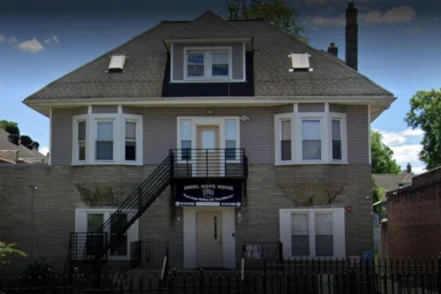 New Jersey
New JerseyAngel Hope House
800 Clinton Avenue Newark, New Jersey 07102
-
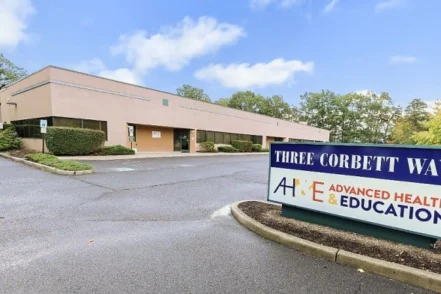 New Jersey
New JerseyAdvanced Health and Education
3 Corbett Way Eatontown, New Jersey 07724
-
 New Jersey
New JerseySpectrum Healthcare
74-80 Pacific Avenue Jersey City, New Jersey 07304
-
 New Jersey
New JerseyAbsolute Awakenings Treatment Center
3000 NJ-10 Morris Plains, NJ 07950
-
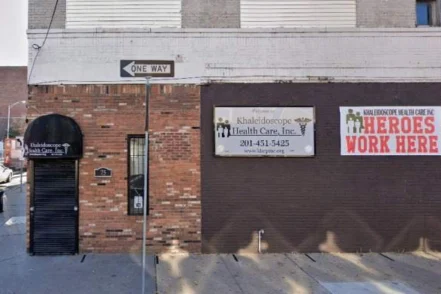 New Jersey
New JerseyKhaleidoscope Healthcare
75 Harrison Avenue Jersey City, New Jersey 07304
-
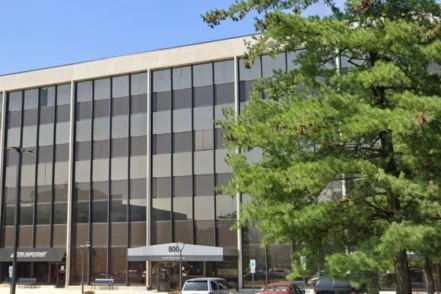 New Jersey
New JerseyLegacy Healing Center New Jersey
800 Kings Hwy N, Suite 100 Cherry Hill, New Jersey 08034
-
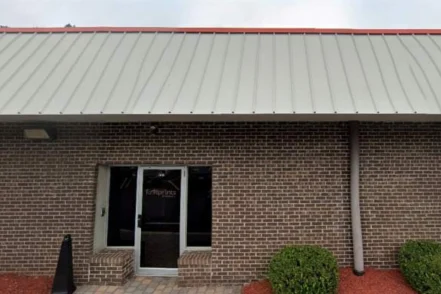 New Jersey
New JerseyFootprints to Recovery New Jersey
3535 Quakerbridge Road, Suite 300 Hamilton Township, New Jersey 08619
-
 New Jersey
New JerseyRecovery Centers of America at Voorhees
526 S Burnt Mill Road Voorhees, New Jersey 08043
-
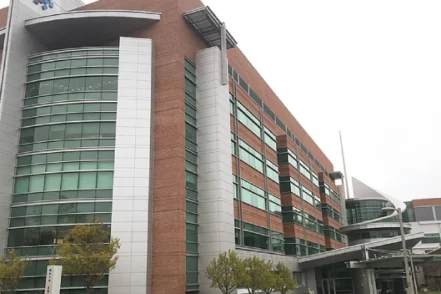 New Jersey
New JerseyJersey Shore University Medical Center Neptune
1945 State Route 33 Neptune, New Jersey 07753
-
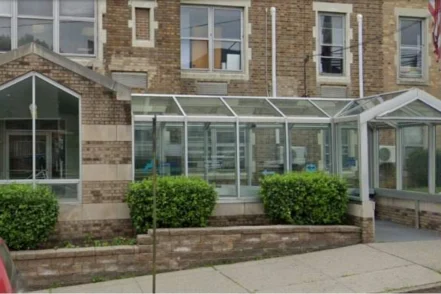 New Jersey
New JerseyEndeavor House North
206 Bergen Avenue, Suite 102 Kearny, New Jersey 07032
-
 New Jersey
New JerseySunrise House Lafayette
37 Sunset Inn Road Lafayette, New Jersey 07848
-
 New Jersey
New JerseySOBA New Jersey
104 Bayard Street New Brunswick, New Jersey 08901
-
 New Jersey
New JerseyRecovery Centers of America at Lighthouse
5034 Atlantic Avenue Mays Landing, New Jersey 08330
